"Death Culture at Sea" Releases EP
Death Culture at Sea, with Awl pal Matthew Gallaway on guitar and vocals, has released an EP, “God Loves Lola,” which can be downloaded here. They have amps!
Respected Scientist Needs To Put The Bong Down, Seriously
“We may not be living in our universe at all; we might be living inside a rebounded black hole that exists in a different universe.”
–Indiana University’s Nikodem Poplawski used a modified version of Einstein’s general relativity equation to calculate something that doesn’t make any sense and hurts my brain to think about. (Apparently it has to do with “singularities,” which are not times when the computers will take over, but places where the density of matter reaches infinity. And maybe the portal from Donnie Darko? I don’t know.) The video above is about black holes, too. And totally cool to watch.
Understudies! The Technicolor Grace of 'Godspell'
by Richard Lawson
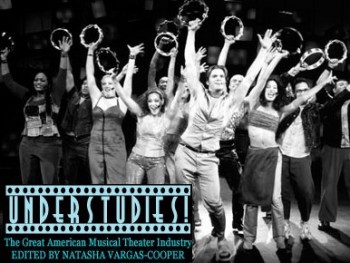
Sitting in a circle on the grass on my second day of freshman orientation at Boston College, the inevitable gay issue came up. Not about me, just in a general sense, a rap session topic. “Let’s talk about tolerance,” said my orientation leader (a member of an aggressively peppy tribe-khaki’d and polo’d kids who loved being party animal emissaries for this scrub-cheeked, undercover party school). Boston College had just been rated number two in the US World News & Report list “Alternative Lifestyles Not an Alternative”, second only to southern horror show Duke. BC was not a gay-friendly school, this magazine said, confirming what growing up ten minutes from campus and seeing what kind of kids from my high school ended up at BC had already told me. But there I’d ended up anyway, sitting in awkward Indian style (does anyone call it that anymore?) while cottony blonde girls tried to sound open and kind, “There was a gay kid at my school in [Connecticut or New Jersey town] and no one really cared”, and ruddy faced boys simply grunted or looked away, uncomfortable, knowing they’d have to deal with gay stuff a little bit more now that they were in college, but already steeling themselves for four years spent not learning anything, readying themselves for all the beery slurs they’d hurl, all the boys they’d quietly harass or, worse yet, completely ignore, treat as something less than human, not worth anyone’s time. Let’s talk about tolerance! With these people? At this Catholic school? No thanks.
I really hadn’t wanted to go to Boston College. At the time I had to start applications I was a newly minted theater kid, having just come off a year or two dabbling in the Asian artfag scene (a girl named Han had an apartment all to herself in a strange corner of the city near school, we’d go there and lie in a pile and talk about nothing). The theater scene at Boston Latin high school wasn’t your typical Glee-type bubblerama. There weren’t show queens or ambitious Randi Kleiners (look it up). Ours was a drama “program” -I use that loosely because we didn’t really have any faculty supervision and barely existed even as a club-that didn’t even do musicals. No, Center Stage Productions, as the club was known, had decided to go for the high-minded artsy stuff. This made some sense, as the older kids who had revived the club after years of neglect were the sons and daughters of faded hippie bohemians from Jamaica Plain, people who had traded their VW buses for Volvos and big, drafty Victorians. They were quixotically smart and intellectually ambitious kids. When my sister was a junior, she was cast in a production of Elie Wiesel’s three-hour-plus Trial of God, in which members of a Polish shtetl put God on trial after a particularly nasty pogrom. The first boy I ever kissed played the Devil. The show ended with ominous string music and a projected slide of Hitler saluting. (The first boy I ever had a crush on put the slide in upside-down at one of the shows, which people assumed was some sort of Statement. It wasn’t.) I went to the Saturday matinee, attended by about ten people.
So we Boston Latin theater kids were youthfully pretentious and trying very hard to be independently minded. Thus developed college fantasies of Grinnell and Kenyon and Oberlin, small cow pasture weed meccas where people were smart and often upset about things and sports didn’t matter and, of course, where they never did musicals. Well, if they did, they were really avant garde. No Oklahomas. (It’s funny that I felt so strongly about that last part, considering my love of theater had arisen from my dad-fan of all things composed before 1960-bringing home records of Brigadoon and South Pacific and, of course, West Side Story. And hell, at that point I’d already seen Rent seven times. So it’s not that I hated musicals, maybe I was just wary of the student productions, all wobbly warble and cracking tenors and shuffling, dumpy choreography.)
Though I had these small liberal arts college ambitions, they didn’t really belong to me. They belonged to my friends who had far better grades and genuine interests in academics and newly budding philosophies for living. I was just a lazy kid who cut class a lot. (I enjoyed writing, but only maudlin poems that were more diary than career aspiration.) And anyway, it didn’t really matter how adamantly or loudly I declaimed about how I needed a school that really fit me, because I was always going to go to BC. My father was a professor there, so it was free, and you can’t turn down free college lest you become the biggest idiot in the world. I always knew that I was going to end up there, but my parents, bless them, let me have my few months of trying to establish my difference, of trying to buck against a trend, to stare down and defeat the inevitable. Seventeen-year-olds need that feeling, probably, even if it’s all in vain.
When the acceptance letter came-I did a jig in the street while the Jolly twins, dropping me off from school, clapped and cheered from inside their Mercury Cougar-the rush of relief of not having to worry about college applications anymore, ever again, quickly curdled into a dull kind of dread. Now that I’d actually gotten in, I’d actually have to go. To Boston College; to Catholic preppy A&F; Disneyland. I imagined getting stuck in a dorm room with some nasty hockey player. I was terrified. And my fear grew deeper during that orientation weekend, where indeed no one seemed particularly interested in talking to the fey-ish, decidedly unathletic kid who stood far from the pack, smoking cigarettes and looking off toward nearby home.
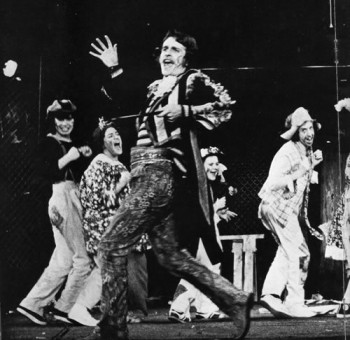
Freshman year delivered in much the same way. I auditioned for the weirdest play they were doing (Nicky Silver’s Pterodactyls), got a callback, didn’t get in. I was disappointed, but not surprised. I decided to avoid the theater major, so full of the gregarious musical theater types that had seemed near nonexistent in high school. I got a job waiting tables at a faux-‘50s diner/deli near my dorm and I fell headlong into the social scene of the people who worked there. I met interesting people-college refugees, girls with mysterious and unspoken pasts, boys who sold drugs from their crappy Allston apartments, a disarmingly friendly couple from Montana. BC was just where I slept, where I went to class. I had a few friends there whom I saw intermittently, but mostly I was a ghost. I took solitary walks around the dark streets of Newton, smoking joints and heading home just in time for Conan, pretty much every night that I wasn’t working.
By sophomore year I was readying my application packet to transfer. I’d decided on Vassar, because it was artsy and had a large gay population and felt about as faraway from anything BC as you could get in the Northeast. (Hampshire, I guess, was not really on my radar.) But then, suddenly, that mean old theater bug bit once again, and I decided to audition for one last show. It was a student-directed production of Love! Valour! Compassion!, one of Terrence McNally’s soapiest gay plays. They were doing gay things here? I was surprised and intrigued. I auditioned, I got called back, I stayed all afternoon until it was just me and one other guy up for the same part. I didn’t get it. This time, I was crushed. BC had dangled something promising before me, only to snatch it away at the last possible minute. What I’d known all along was true. There really was no place for me there. Feeling dejected back at my dorm room that night and fiddling around on AIM as one did in those glorious Buddy Info days, I sent a message to one of my few theater friends (really an acquaintance at that point), a senior who was big and gay and wonderful. He said that it had been really close between me and this other kid, so I should feel good about that. And, hey, if I wanted to, I could come work on the show he was directing as an assistant stage manager.
On any other day I probably would have said thanks but no. I was trying to leave the school anyway, what was the point of getting involved in some lesser thing-not acting, just working backstage? Plus, the show was Godspell, that square hippie religio-relic all about the feel-good Jesus of the ‘70s. This was something I hated about BC, the religion! This was what, at root, justified my classmates’ meanness, what made me so foreign to so many of them. It was exactly the kind of show that we would have scoffed at back at Latin, laughing as we strutted off to rehearsal for some Jean-Claude van Italie one act. (We did two of those during my tenure.) But for some reason that night, maybe feeling overwhelmed by all the work that would go into transferring, maybe feeling drawn in by my friend’s warm gravitational pull, I said yes. I was going to work on a production of Godspell. At Boston College. Heaven help me.
Godspell is basically a retelling, in a doo-da manner, of the parables of the New Testament. There’s rock, revival, gospel, pop, disco, all manner of watered-down musical styles that cleave pretty closely to the ultra-positive aspects of the Bible. It’s the kind of show that old people and children love, that is hard to make modern. It wasn’t a stretch for Boston College in any manner, they’d done a Jesus Christ Superstar with a girl Judas the previous spring, but the show is at least blank enough that a director can come up with any staging he so chooses. This production’s director, gay theater angel Kyle, decided to do a slightly techno motif, with ones and zeroes painted on the floor and lots of old computers and TVs littering corners of the stage. It didn’t make much sense, really, but it didn’t need to. At heart the show is just an excuse for eleven people to each have a song, a goopy, fun hour and a half of gently feel-good Christian affirmation. Obviously, this terrified me.
The cast was full of BC Kids, tri-staters who’d gone to Catholic high schools, who were used to going to church, who didn’t smoke but drank shitty beer, who had that zippy enthusiasm and mainstreamness that I oh so torturedly found exhausting. At first they didn’t seem interested in talking to me, shy and distant as I was, popping up only to move set pieces around and tape out the floor. Worse still they really seemed to believe in the Jesusness of the story. They actually knew the parables, got all the biblical references. Though the cast was clearly not hung up on the gay thing, the same unspoken social otherness seemed ever-present. If this was as close as I was going to come to a welcoming community at BC, it was not close enough.
Though, as tends to happen when you’re 19, things eventually, quickly even, changed.
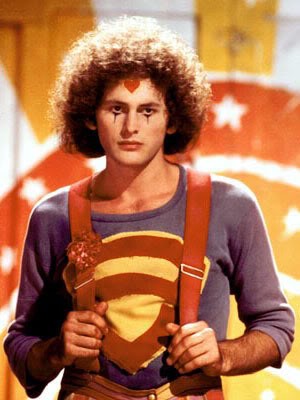
It’s funny to arrive at an age when you can actually look back at the past and clearly discern the moments that did, all cheesy cards in, change your life. As it would happen, agreeing to work on this silly kitchen sink production of Godspell that blue Sunday night was one of those moments. Somewhere in the process, I accidentally let my prejudices and worries and social insecurities drop. I began to embrace the oft-heartbreaking faith of the theater. The show, as it turned out, was very corny, yes, but it wasn’t really about the mean God to whom the Jesuit school overseers paid (diminishing, as it turns out) credo. It was about all those active, big-hearted things that the OLs at orientation had been straining to synthesize-celebration, enthusiasm, togetherness. This was not God on trial, there was no tragic cynicism here. Plus it’s a Stephen Schwartz show, so it’s really pretty gay. Alternative lifestyles: Sure, why not!
Throughout the weeks of rehearsal my layers of practiced angst began to fall away like dead skin. The cast was just so upbeat and engaged all the time; it was impossible to resist their thrall. There were the crazy twins who played Jesus and Judas, musical theater prodigies who now tour on cruise ships doing a cabaret act for old people. The short, dark-haired a cappella boy on whom I developed an ill-advised crush. My superior Sarah, the almost-as-out-of-it-as-I-was stage manager who became-accidentally, a switch just flipped one day-my confidant. At some sort of cast bonding party, one of those forced hanging-out things that are terrible and terrific all at the same time, I was social and genuinely open with the cast and crew for the first time. I’m not entirely sure what changed-I suppose I finally felt safe and welcome, there at an off-campus apartment, surrounded by people whom I suddenly trusted to not dismiss me solely for being-but that night I made a drunken, bleary, mostly subconscious decision to not live so obstinately on the outside of things. Maybe there was nothing wrong with diving in, with believing that, yes, good things could happen. Once I’d let the Technicolor grace of Godspell into my heart, I made more dumb jokes, I laughed too loudly, I made noise in public, waved bigly to cast members I saw in the dining hall. This was not the withdrawn, self-imposedly miserable me of freshman year, the one I was supposed to have been, the person I’d been crafting so carefully since those cigarettey high school days.
The theater scene at BC, which became for three too-short years my entire world, was very small and insular, and sometimes I find myself wishing that I could go back and make more friends who existed outside of it. (Even though, yes of course, a lot of them on the outside were still shitty jerks who bellowed things at me and my friends as we made our way home from parties.) But mostly I know that it was there that I found my church, my parish of fellow faithfuls. Maybe this is a bad story. Maybe I fell prey to religion in the same way that other desperate, needy souls do. Maybe I changed too much, became too rah-rah and simple. But I was so happy. And eventually the good old parts of me resurfaced and melded with the new and I gave up acting (to the benefit of all) and found playwriting, discovering, by accident, what I hoped to Do With My Life.
I like now, when I am feeling nostalgic or lonely or just quietly dumbstruck by time quickly passing, to think about the moment toward the end of the show, after Jesus has died and all is quiet. And then one cast member stands up, sings a small, plaintive “Long live God.” And then she is joined by another, and another, and another. Until there is a cacophony of voices, a processional of bright souls singing their way out of the theater (carrying Jesus’ body, naturally). How nice it is to think about people destroying dark things with music, about the inherent wonder of putting on a show. While working on Godspell, theater became something not idle or passing. The silly can-doism that the show and this particular production, this particular group of sunny kids, espoused became my passion-to create and believe with abandon. This goofy ambition became as close to a mission and a calling as I’ve ever known. And though in the ensuing years it’s been back-burnered a bit, put on the sidelines, I still think of it fondly as my one true church. The praiseful entity that did, in typical big-grinned fashion, save a wretch like me.
Richard Lawson’s favorite musicals are Company and the first act of Into the Woods.
News Organization Rushes Breaking Story To Print Before All Facts Can Be Verified
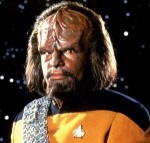
“The Jenolan Caves near the Blue Mountains west of Sydney is about to become possibly the first tourist attraction in the world to launch tours in the fictional Star Trek language of Klingon.”
–Possibly the first. The Australian Broadcasting Corporation’s fact-checking department is hard at work trying to confirm this difficult-to-nail-down detail in its reportage about how two American “Klingon scholars” have recorded a translation of the text to the self-guided tour of the world’s oldest (are we sure about that?) dated limestone cave system and will make it available on a digital device next month. (The caves apparently get a lot of Trekker traffic because a ship called the USS Jenolan made an appearance in an episode of Next Generation.) And then, possibly my favorite part of the story: “Jenolan Caves tours will also be available in 10 other more commonly-spoken languages.”
Staples: Where Violence Comes To You
Supplies! “Four men with a seemingly limitless appetite for office supplies have burglarized Staples stores in Manhattan at least seven times this year, the police say.”
The Menace of Men During Childbirth
Oh brother. Obstetricians speak out on the menace (get it?) of men in delivery rooms: “It was like he was checking out the damage to his property. Makes me understand why so many lesbians go into OB-GYN.”
Chicago Paper Endorses Sippy Cups For Older Kids
“Sippy cups are primarily for toddlers, yes. But they’re also handy when you put a 7-year-old in a pristine white dress, hand her chocolate milk and expect her to stay clean and happy. After the Tribune reported she was drinking chocolate milk (a treat, we assume, for suffering through the day in court), the sippy cup decision struck us as eminently reasonable.”
-The Chicago Sun-Times defends Rod and Patti Blagojevich’s decision to have their daughter carry a sippy cup into the courtroom where the former Illinois governor is being tried for corruption. Critics contend it was a ruse meant to make the jury think the daughter is younger than her 7 years. Jury deliberations began earlier today, and at least one observer thinks Blagojevich has a good chance of beating the rap.
'Kids,' 15 Years Later
by Adam Taylor
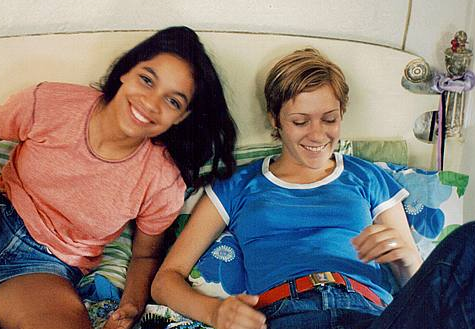
Kids, a film about a bunch of hard-living New York City kids, premiered 15 years ago today. The film still seems to define an era of New York City-the pre-Giuliani 90s; a golden era for hip hop, skateboarding and indie rock. New York City was the coolest city in the world, and by extension, its kids were the coolest in the world.
Director Larry Clark, 52 at the time, set out to capture on film the variety of depravity of youth on which he’d fixated throughout his long career in photography. He enlisted the help of 18-year-old writer Harmony Korine, as well as a bunch of East Village skater kids and a certain up-and-coming Sassy magazine intern to create a race-against-the-clock story, set before a background of teenage decadence and HIV.
The plot seems inconsequential compared to some of the set pieces: the opening shots of the ‘Virgin Surgeon’ Telly deflowering an impossibly young looking girl; Caspar beating a man twice his age with his skateboard; Harold Hunter slapping his penis between his thighs in a public pool. It was crude, yet compelling-Kids felt authentic and thus gained importance because of its perceived authenticity. The lives these 13-to-17-year-olds lived seemed real. Janet Maslin of the then particularly dreary New York Times called it a “wake up call to the world”-this was then touted in the trailer.
When I saw the film, I was around the same age as the kids in it. There was a stark contrast between my life and “theirs.” (That this film was actually a work of fiction was easy to forget.) These kids were the “real deal.” I clearly was not. New York City was a playground for them, full of drink, drugs and sex. My life, in suburban London, was the definition of leafy, and my social life revolved largely around the Nintendo 64. I wore glasses and I couldn’t skateboard. In fact, no one I knew could really skateboard. I was sold on the New York City exported by the film.
Ten years later I now live in New York, and I barely recognize it from the film. There are no skateboarders in Washington Square Park, just NYU students. The East Village is full of bars with beer pong tables in the back, Ivy educations and Japanese restaurants. I still don’t know anyone who skateboards.
It seems that in many ways the city seems to have forgotten the film, just as many of those involved in the film also seem happy to forget it. Some might expect some sort of celebration of the 15th anniversary of the film, but few seem to be talking. (Larry Clark’s agent did not respond to inquiries.) Harmony Korine has moved away from the realism of that film’s concept and execution, settling most recently on a bizarre faux-realism in his faux-documentary Trash Humpers. “It was not a movie I was dying to tell,” he has said of Kids. And our Sassy intern, Chloe Sevigny, has since said that she can’t bear to watch the film, and that she doesn’t like the movie much.
Perhaps the movie holds unhappy memories for some. While two members of the cast, Sevigny and Rosario Dawson, found significant success after, another two died young-Justin Pierce killed himself in a Las Vegas hotel room and Harold Hunter died of a drug overdose in the same East Village project housing that he grew up in (friends and family later donated money to pay for a funeral). It’s evident that despite being in an important film, few members of the cast were able to convert their bad beginnings into a good career.
One man who hasn’t moved on as much appears to be Clark. “With “Kids” I thought I got it right,” he told Salon in 2001, “I worked hard on the film. I hung out with Kids all the time. I got the idea and the story for the film from hanging out with Kids.” His later, progressively less successful films, such as Bully and Wassup Rockers, deal with extremely similar themes. His current project, Savage Innocent, sits in classic Clark territory-a teen running away from an abusive home (his remake of Neil Jordan’s Mona Lisa, apparently to star Mickey Rourke, appears to be on hiatus). Clark’s intentions are, as ever, difficult to dicipher. Is he some kind of permanent teenager, celebrating the life he lives, or is he ultimately cynical, selling teenage self-abuse to voyeurs around the world?
Fifteen years on, the cast, city and audience of Kids might have moved on, but the film itself remains troubling. It walks a tightrope between exploitation and art. Clark still seems completely comfortable with that, both in film and in photography. Kids portrayed a city that I never knew-and what’s most worrisome is to think that maybe, just maybe, it never existed, except to be sold to me.
Adam Taylor is a journalist-type living in Brooklyn. He is English and sorry about that.
Town Council: "Do Not Ruin New Jersey's Famously Pleasant Bouquet With Your Stinky Urine"
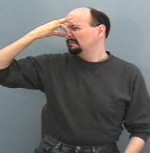
Galloway Township is doing it’s part in the “Jersey Doesn’t Stink” campaign. As the Press of Atlantic City reports: “The Township Council passed an ordinance Tuesday night that would allow police to fine people as much as $1,000, with potential jail time and community service, for urinating or defecating in public, Mayor Keith Hartman said.”
The passage of the law (which seems rather Draconian, no?) gives a good look at how things get done in the not-always-garden-fresh Garden State. Apparently, members of the town council were upset when a sheriff was legally unable to prevent a bar from holding a “Girls Gone Wild” promotional event in April, and they decided to pass an indecency act. But most of the language regarding obscene language and gestures was taken out of the bill because the council could not agree on a definition of obscenity. So all that’s left is you can’t pee behind the trees in the Pine Barrens.
Helpfully, NJ.com’s Greg Saitz has put together a list of the best public restrooms in the state. (George Costanza kept a similar list for New York on Seinfeld.) The best one, though, isn’t really a public bathroom, although if you found your way to artist Ricky Boscarino’s house in Montague, I’m betting he’d help out a traveler in need. Look at this place!
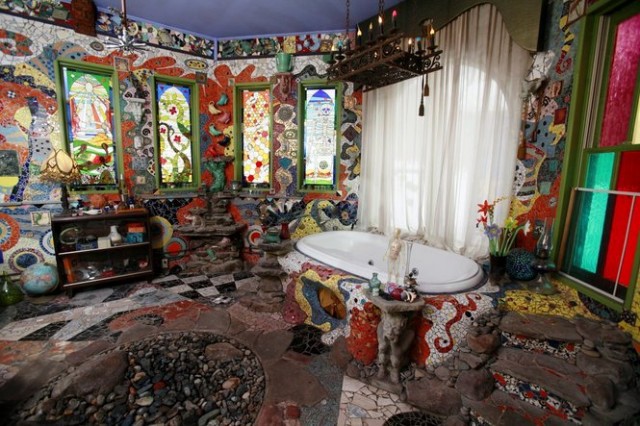
“I refer to it as a temple honoring the body and its function,” says Boscarino.
That’s kind of the way I think about New Jersey as a whole.
New Punchline Discovered For Jokes About Your Ex-Boyfriend's Stamina
New Punchline Discovered For Jokes About Your Ex-Boyfriend’s Stamina
“The team bombarded atoms of neon gas with near-infrared laser light in 10–15 second pulses and ultraviolet pulses of far shorter durations of just 180 attoseconds (remember, an attosecond is one billionth of one billionth of one second). The near-IR light served as an attosecond chronograph, measuring the time of UV impact and the time the electrons exited their orbits… they found that electron ejection is not a ‘time zero’ action as once presumed, but that excited electrons hesitate very, very briefly before leaving the atom.”
–Scientists in Germany have made history by recording the shortest time interval ever measured in nature: the 20 attoseconds it takes to separate an electron from its host atom with high-intensity lasers. This might have something to do with why it was so difficult for kids to win at phone-in television video-game contests like TV Powww! and Pixxx! in the early 1980s. And is also a good analogy for what happened the first time some of those same kids had sex.
